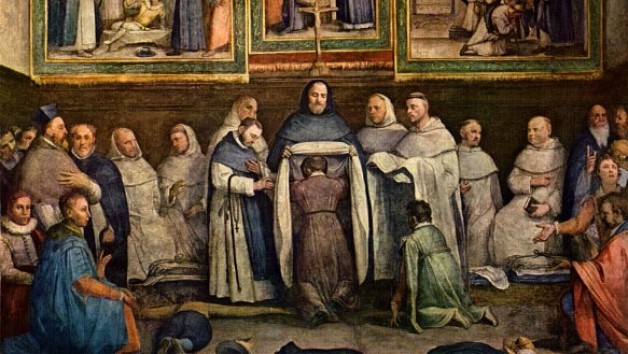“What do you seek?” These are the first words Jesus speaks in the Gospel of John (1:37). They are also the words He continuously speaks to us; and only those who continuously answer can rightly be called his disciples. For many of us, the first time we truly let this question pierce our hearts is when we are in the depths of our sins. We finally hit a wall; we get a glimpse of who we are, and the image is not pleasant. We discover, perhaps, that what we thought would make us happy has done no such thing. We see the shallowness of our lives, and in a new way we hear the question, “What are you seeking?”
We begin to realize that what we are seeking is not within our power to grasp. We want fulfillment. We want peace. We want love. We want happiness. And yet, we cannot do it alone. Everything we do to achieve our own happiness seems to backfire. We fall deeper into sinful habits, and, perhaps just when we expected that everything would be okay, we find that we are unhappier than ever. It is at this point that we truly begin to understand the words of St. Augustine: “You made us for yourself, O Lord, and our hearts are restless, until they rest in you.” In other words, we find that we are seeking someone. We find that we are seeking Christ.
In the Dominican Order, we are asked the question, “What do you seek?” on two occasions: at vestition, when we are clothed in the habit, and at profession, when we pronounce vows. At these moments, in the voice of our superior we hear the voice of Christ himself, asking us the very same question he put to those two disciples of John the Baptist: “What do you seek?” But, whereas they replied by asking another question, “Rabbi, where are you staying?” we reply with an answer: “God’s mercy and yours.” We do not ask to be made amazing preachers, to be treasured by the Order, or even for eternal life. We ask for God’s mercy and that of our brothers.
This answer is one of absolute humility, and for the rest of our Dominican lives we are called to grow into that humility. Over and over again, we are called to seek God’s mercy and, in receiving it, to hope for eternal life with him. Over and over again, we are called to ask for mercy from our brothers and, in receiving it, to give it freely in our turn. In this way, we discover that it is part of God’s mercy toward us that He allows us the grace of extending his mercy to our brothers and sisters.
Another thing we discover, in this receiving and sharing of God’s mercy, is that God’s mercy is God himself. Of course, his mercy can and does show itself in individual acts: in forgiveness for the sinner, comfort for the sorrowing, self-control for the intemperate, etc. Ultimately, however, these individual acts are manifestations of God’s self-giving love, and He and his love are identical. Thus, we find that the final cure for our woes, the ultimate source of our happiness, does not lie in any of the good things God does for us, but rather in God himself. Life with and in the triune God: this is what all Dominicans, all Christians, seek.
Yet still we find ourselves seeking God in every place except where we might actually find him. We look for him – we look for happiness – in the strangest of ways: by surfing the Web, by watching television marathons, or by doing any of the hundreds of other things we can devise to entertain and distract ourselves. We do this because seeking God is sometimes a painful task that involves dying to self. It means taking up our cross and following One who was crucified. We must remember, however, that He loves us, and that He died for us so that we might be happy with him forever. Therein lies the mercy.
So, what do you seek?
✠
Image: Unknown, St. Dominic Clothes St. Hyacinth in the Habit at Santa Sabina







